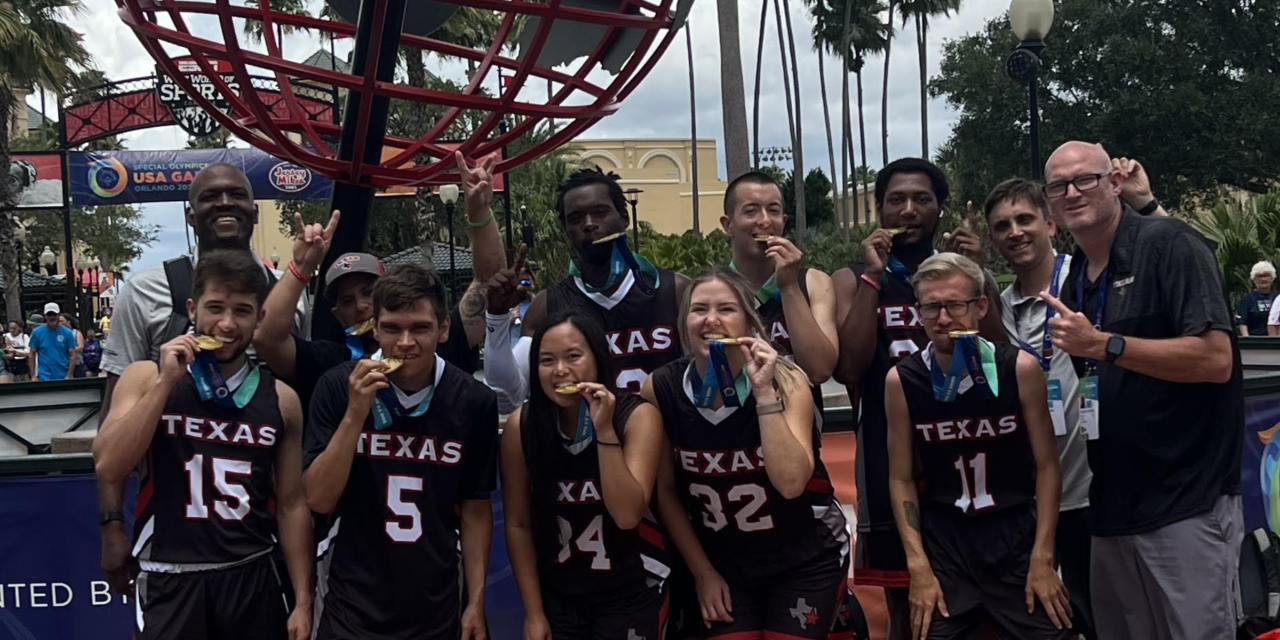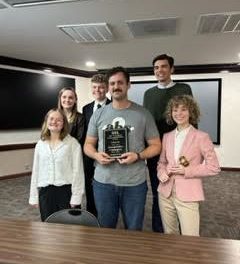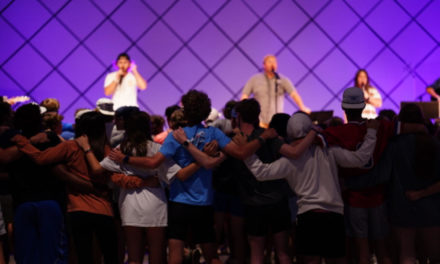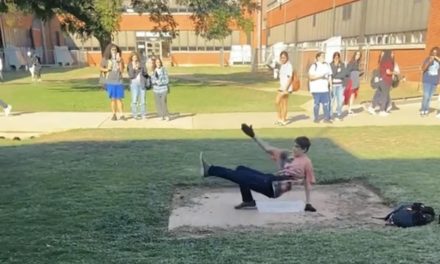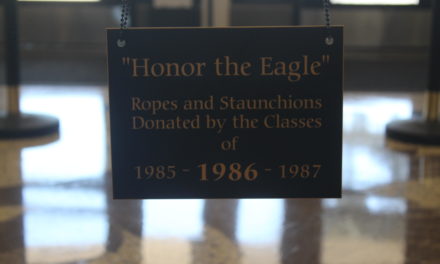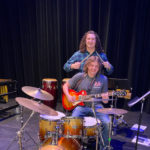By Marin Murray.
The team had already won before they even stepped onto the court to compete in their first game of the tournament. Not because of the basketball skills they possessed, but because of their ability to overcome the obstacles they had faced in their lives with an immense amount of joy and excitement. The gold medals that hung around their necks at the end, as a result of their hard work and dedication, only added to their already incredible success.
“It was really cool,” head basketball coach Justin Reese said. “Like as soon as the buzzer went off, we had two or three of our players start crying because they’re so emotional because it was such a big deal to them. So it was awesome.”
At the beginning of June, Reese was granted the opportunity to coach the Texas Unified 1 team in the Special Olympics basketball tournament in Orlando, Florida along with his friend and fellow coach, Brandon Osborne.
“I’d never done it before,” Reese said. “I’ve watched Special Olympics games before but I’ve never coached for them. Being a part of it for the first time, it was a blast.”
The team didn’t have much practice together prior to the tournament, causing them to have a rocky start to the pool play part of the event. Pool play is where each team plays one another to determine seeding for the elimination stages of the tournament. But despite their slow start, the team found their rhythm during the knockout stages of bracket play and wound up victorious, bringing a gold medal back home to Texas.
“I think for these athletes, they wanted to win, and it was important to them,” Reese said. “I think there was just a lot of value in being there and being a part of it. I think it’s something we forget sometimes, when we’re competing on Tuesday and Friday nights. I think just being a part of something like that and that excitement was a lot of fun.”
Reese’s team was composed of 10 athletes, all from Texas and all high school-aged. The tournament was played with regular basketball rules, the only difference being that each team had to have three athletes and two All-Stars on the court at all times. All-Stars are individuals that do not have intellectual disabilities, but get to play alongside the athletes.
“I think it just helps you kind of remember your priorities and why you’re in this sport,” Reese said of his experience. “Whether you’re a high school coach or a college coach or a Special Olympics coach, I think we need to be looking to find a lot of value in just being a part of something bigger than us and not always putting so much of our identity into wins and losses, but all of the other life lessons you can learn along the way.”
The Special Olympics Texas organization, that this team represented, seeks to provide year-round sports training and athletic competitions for children and adults with intellectual disabilities. They also provide many opportunities for the community to get involved with their mission, which is what led Reese to the experience he had this summer, ultimately impacting him for the better.
“I think the biggest life lesson probably is just to be grateful,” Reese explained. “You wouldn’t know that these athletes had disabilities or special needs, because they were just so grateful and excited every day to just be a part of it.”
Not only that, but the athletes’ examples of perseverance and joy through trials throughout the course of the tournament stays with Reese to this day.
“Those athletes never had a bad day, and I think sometimes we take that for granted and we have bad days or make excuses when things get us down,” Reese said. “These players had every reason to hang their head about some of the obstacles that stand in their way, but they never did.”
Reese plans on applying the lessons of patience and perspective that he learned from the players he coached at the Special Olympics to his program and athletes here, at Abilene High. And while their outlook on life may have changed, their goal of winning remains the same as they prepare for the upcoming season, which begins in November.
“Our goal is always going to be to win every game,” Reese said. “I’m a competitor, and I think a lot of our kids are competitors. But I think along the way, you know, I think there’s some value in just being a little more patient and having a little more big picture emphasis.”

